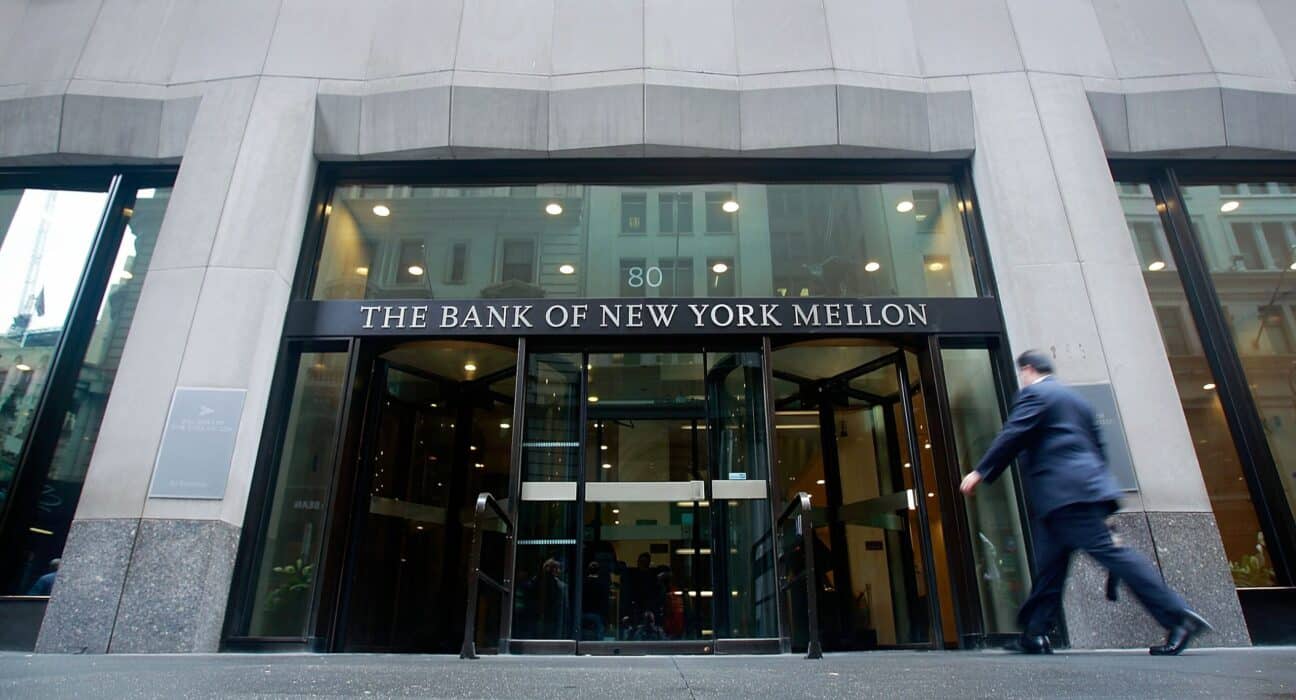BNY Mellon Allegedly Involved in $4 Billion OneCoin Ponzi Scheme
The Bank of New York Mellon (BNY Mellon) is facing allegations of playing a “central role” in the infamous OneCoin Ponzi scheme, a fraudulent operation that swindled investors of more than $4 billion in crypto assets. The allegations were revealed in a class-action lawsuit filed by investors Donald Berdeaux and Christine Gablis against OneCoin and its founder, Ruja Ignatova.
The lawsuit accuses BNY Mellon of processing transactions tied to OneCoin in 2016, despite red flags stemming from its internal investigation. This development adds another chapter to one of the most notorious crypto Ponzi schemes to date.
What is the OneCoin Ponzi Scheme?
OneCoin emerged as a cryptocurrency project founded in 2014 by Bulgarian national Ruja Ignatova, often referred to as the “Cryptoqueen.” The scheme promised huge returns for investors who purchased OneCoin packages, positioning itself as a rival to Bitcoin. However, the project operated as a Ponzi scheme, relying on new investor funds to pay earlier participants.
Key Facts About the OneCoin Scam
- Fraudulent Structure: Investors were misled into believing they were buying legitimate cryptocurrency tokens, which had no real blockchain or utility.
- Global Impact: OneCoin defrauded investors worldwide, accumulating more than $4 billion in stolen funds.
- Ruja Ignatova’s Disappearance: Ignatova vanished in 2017 and remains one of the FBI’s most wanted fugitives.
BNY Mellon’s Alleged Role in the OneCoin Fraud
The latest class-action filing claims that BNY Mellon processed financial transactions for OneCoin, facilitating the flow of funds in 2016. The bank reportedly identified suspicious activities but failed to take effective action to halt the transactions.
Specific Allegations Against BNY Mellon
-
Processed Suspicious Payments: BNY Mellon is accused of processing payments for OneCoin while internally investigating the project as a “Ponzi/pyramid scheme.”
-
SAR Reports Flagged Transactions:
- According to documents revealed in the Buzzfeed investigation, a Suspicious Activity Report (SAR) flagged a $30 million transfer in 2016.
- The payment originated from a company based in the British Virgin Islands, a known hotspot for offshore financial activity.
-
Failure to Act: Despite identifying potential risks, the bank allegedly did not act to prevent further facilitation of the fraudulent scheme.
A spokesperson for BNY Mellon responded to the allegations, stating:
“The bank takes its role in protecting the integrity of the global financial system seriously.”
However, the bank declined to comment further on the ongoing legal situation.
How Did BNY Mellon Get Involved?
Financial institutions like BNY Mellon are often tasked with facilitating large-scale global transactions, making them integral to the functioning of modern financial systems. However, this role comes with compliance responsibilities, particularly regarding anti-money laundering (AML) and fraud detection.
Suspicious Activity Reports (SARs)
A SAR is a document that financial institutions submit to regulatory authorities when they detect unusual or suspicious transactions. In the case of OneCoin:
- BNY Mellon’s SAR: A SAR filed in 2016 identified a $30 million payment linked to OneCoin as suspicious.
- Buzzfeed Investigation: The Buzzfeed leak of SARs revealed that these transactions were part of broader illicit activities involving banks worldwide.
The lawsuit alleges that BNY Mellon’s processing of these transactions—despite internal concerns—contributed to the success and longevity of the OneCoin scheme.
Repercussions of the OneCoin Scheme
The OneCoin scandal has had far-reaching consequences, both for its victims and the broader crypto industry:
1. Financial Losses for Investors
Thousands of investors worldwide suffered devastating financial losses, with an estimated $4 billion disappearing into the hands of the scheme’s operators.
2. Legal Actions
Several individuals connected to OneCoin have faced legal action:
- Ruja Ignatova: Remains missing and is on the FBI’s Ten Most Wanted list.
- Co-Founders: Other OneCoin executives have been arrested and charged.
3. Financial Institutions Under Scrutiny
The involvement of major financial institutions like BNY Mellon has drawn attention to their role in facilitating suspicious transactions. This case raises questions about the effectiveness of AML protocols and the responsibility of banks to prevent fraud.
Why This Matters for Crypto Regulation
The involvement of a major financial institution like BNY Mellon in a crypto Ponzi scheme highlights the need for stricter regulatory oversight:
- AML Compliance: Banks must enhance anti-money laundering protocols to detect and halt suspicious transactions promptly.
- Investor Protection: Stronger safeguards are needed to prevent fraudulent crypto schemes from taking advantage of unsuspecting investors.
- Transparency in Crypto Projects: Clearer regulations for cryptocurrency offerings can help prevent scams like OneCoin from flourishing.
Financial institutions that fail to uphold compliance standards risk legal liability and reputational damage, as seen in the BNY Mellon OneCoin case.
Class-Action Lawsuit: What Comes Next?
The class-action lawsuit led by investors Donald Berdeaux and Christine Gablis aims to:
- Hold OneCoin and its operators accountable.
- Seek damages for victims of the Ponzi scheme.
- Investigate BNY Mellon’s role in processing fraudulent transactions.
This lawsuit could set a precedent for future cases involving financial institutions and their responsibilities in detecting and preventing fraudulent schemes.
Conclusion
The allegations against BNY Mellon in the OneCoin Ponzi scheme underscore the challenges financial institutions face in balancing their roles as facilitators of global transactions with their compliance obligations. While the investigation continues, the case serves as a stark reminder of the risks associated with cryptocurrency investments and the need for robust regulatory oversight.
Victims of the $4 billion OneCoin fraud now look to the courts for justice, as questions about accountability and prevention remain.
To learn more about the innovative startups shaping the future of the crypto industry, explore our article on latest news, where we delve into the most promising ventures and their potential to disrupt traditional industries.
Disclaimer: The information provided is not trading advice, Bitcoinworld.co.in holds no liability for any investments made based on the information provided on this page. We strongly recommend independent research and/or consultation with a qualified professional before making any investment decisions.




